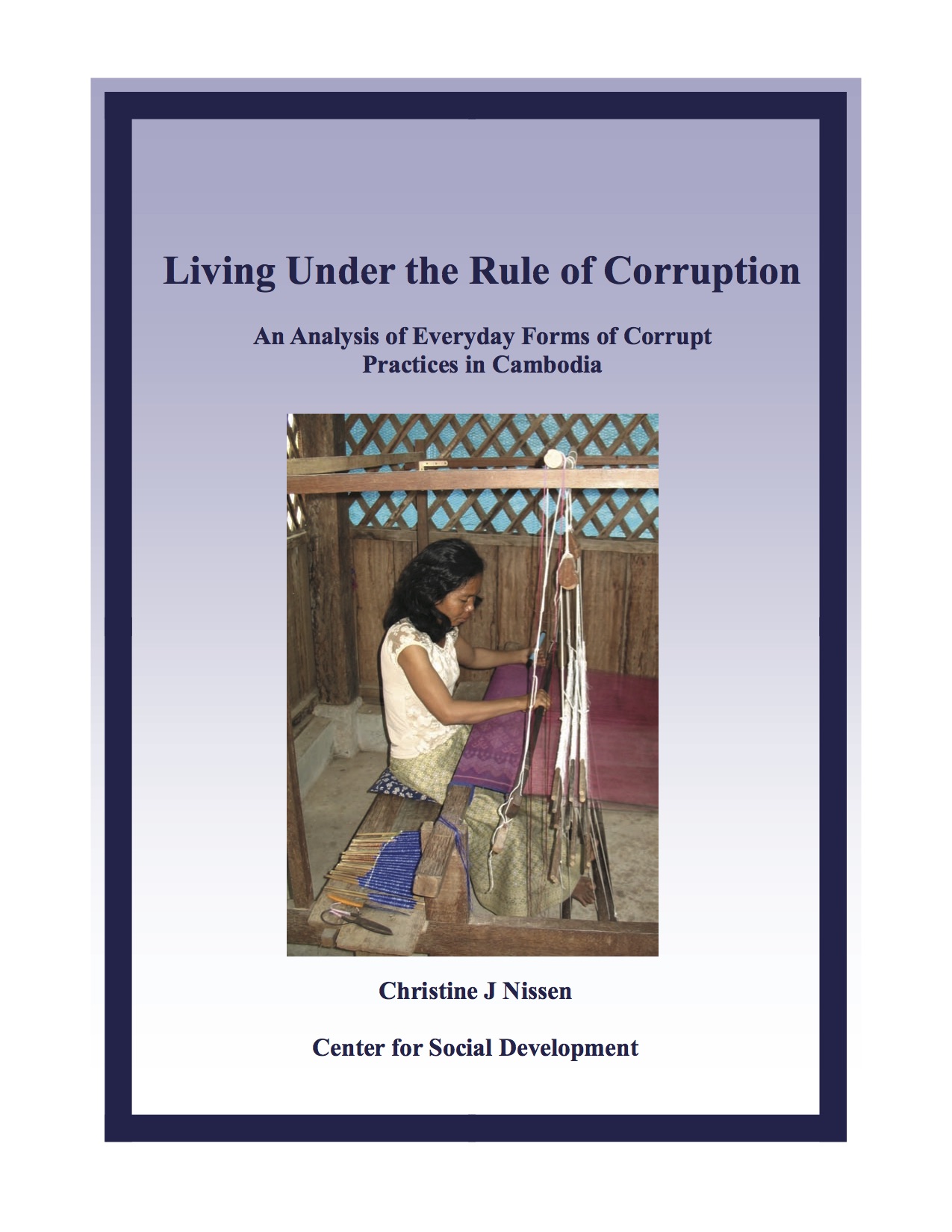
Living Under the Rule of Corruption
Publication Year: 2005 / Sources: Center for Social DevelopmentThis report is the qualitative component of this research project which focuses on local-level corrupt practices. It mirrors the families and household’s concrete experiences with corrupt practices, the effects these practices have on their lives, and their ways and strategies of coping with corruption.
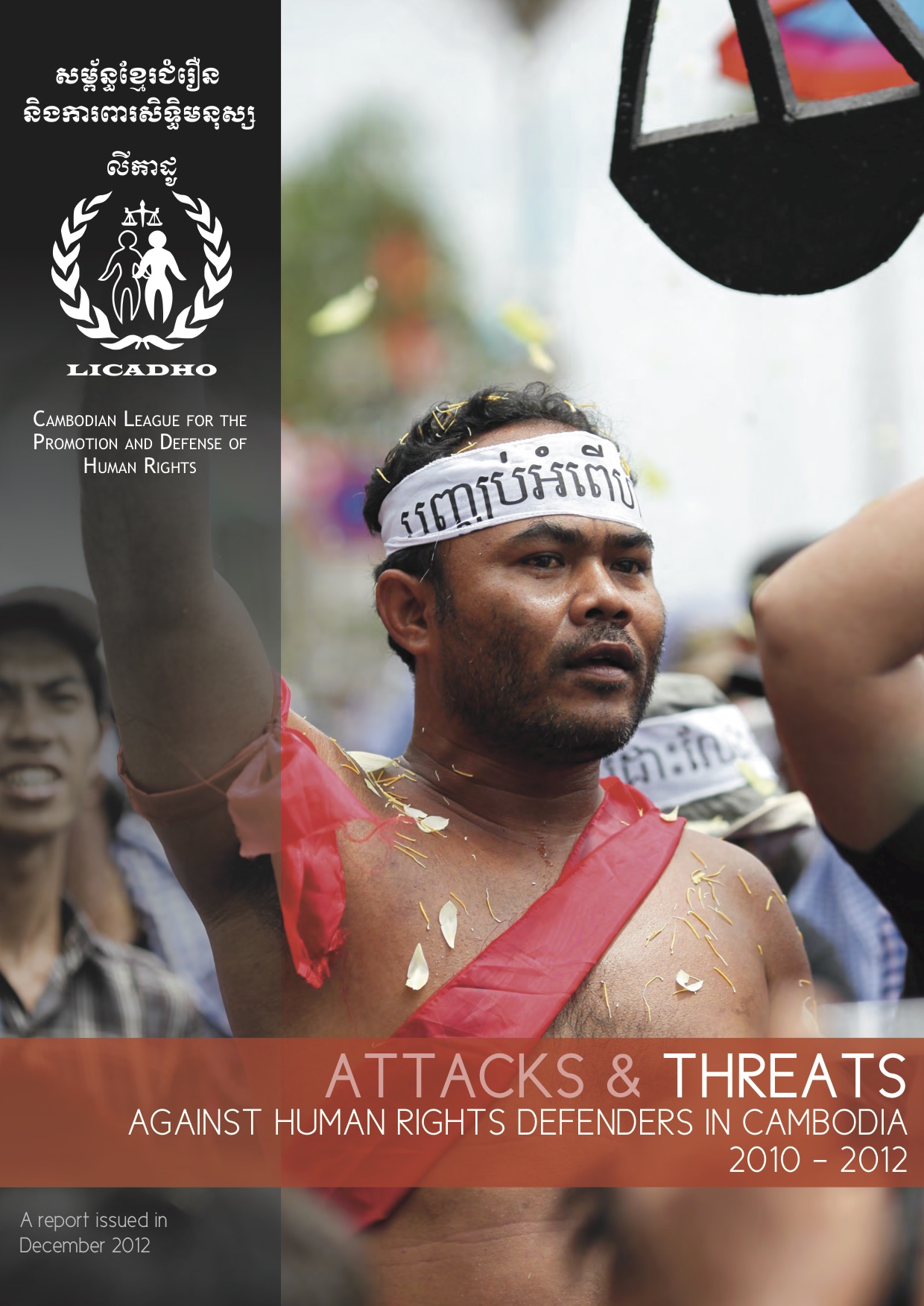
Attacks & Threats Against Human Rights Defenders in Cambodia 2010-2012
Publication Year: 2012 / Sources: LICADHOThis report is by no means a comprehensive examination of all of the attacks and threats against human rights defenders in Cambodia between 2010 and 2012, as many instances go unreported. Instead the report aims to provide a concise overview of the human rights abuses that LICADHO observed and investigated during that time. It also serves as a reference tool to address the attacks and threats against human rights defenders, and raise awareness about the state of human rights in Cambodia since 2010.
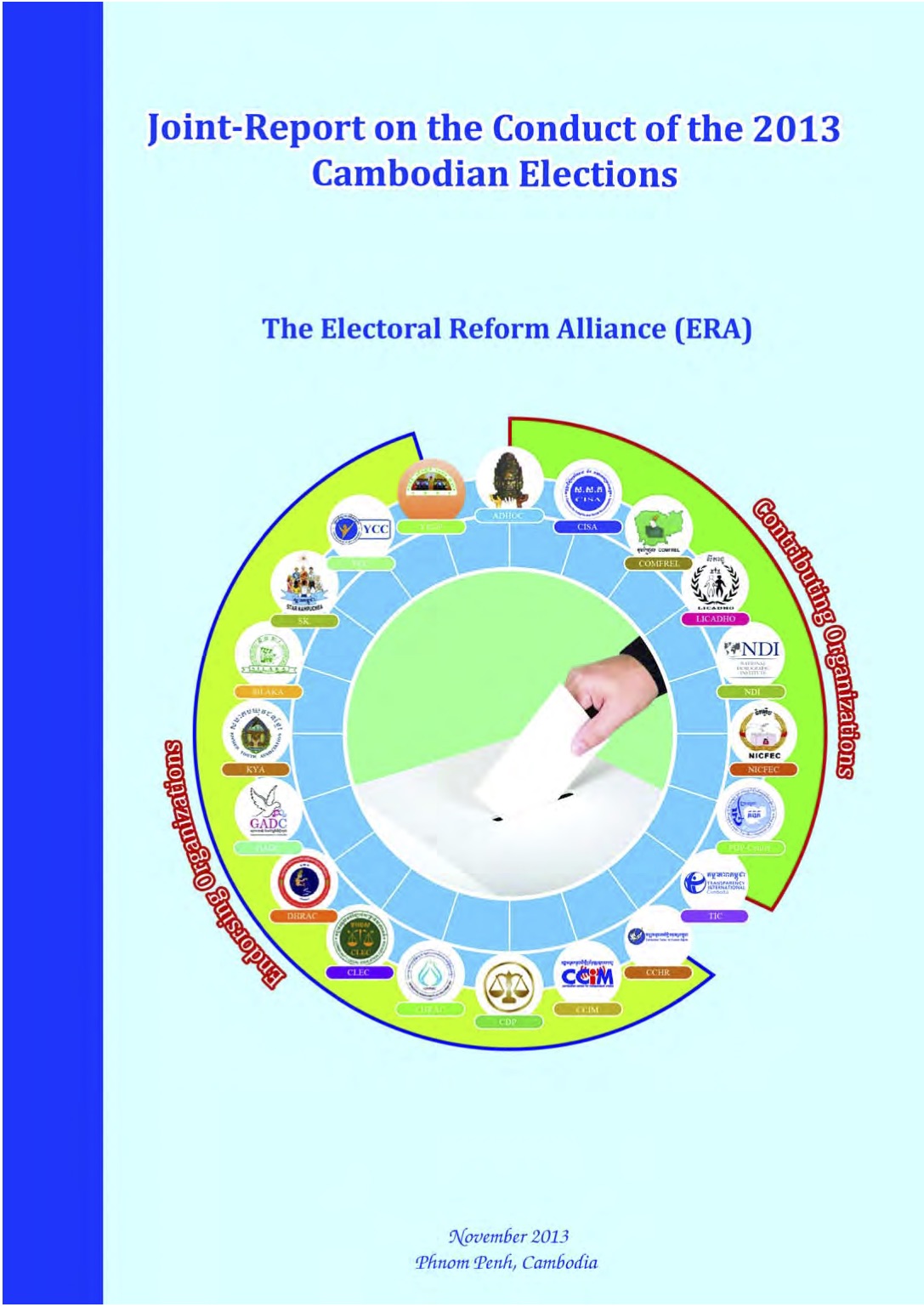
Joint Report on the Conduct of the 2013 Cambodian Elections
Publication Year: 2013 / Sources: The Electoral Reform Alliance (ERA)This report aims to provide a comprehensive view of the problems that have been described in several reports and research conducted on the recent elections. The purpose of this review is forward-looking: i.e., to create the groundwork for future reforms necessary to increase the public’s confidence in the credibility of the electoral process. At the same time, many of the points noted in the report echo recommendations advanced in the past by the UN Special Rapporteur on Cambodia, the European Union, and other respected Cambodian and international sources.
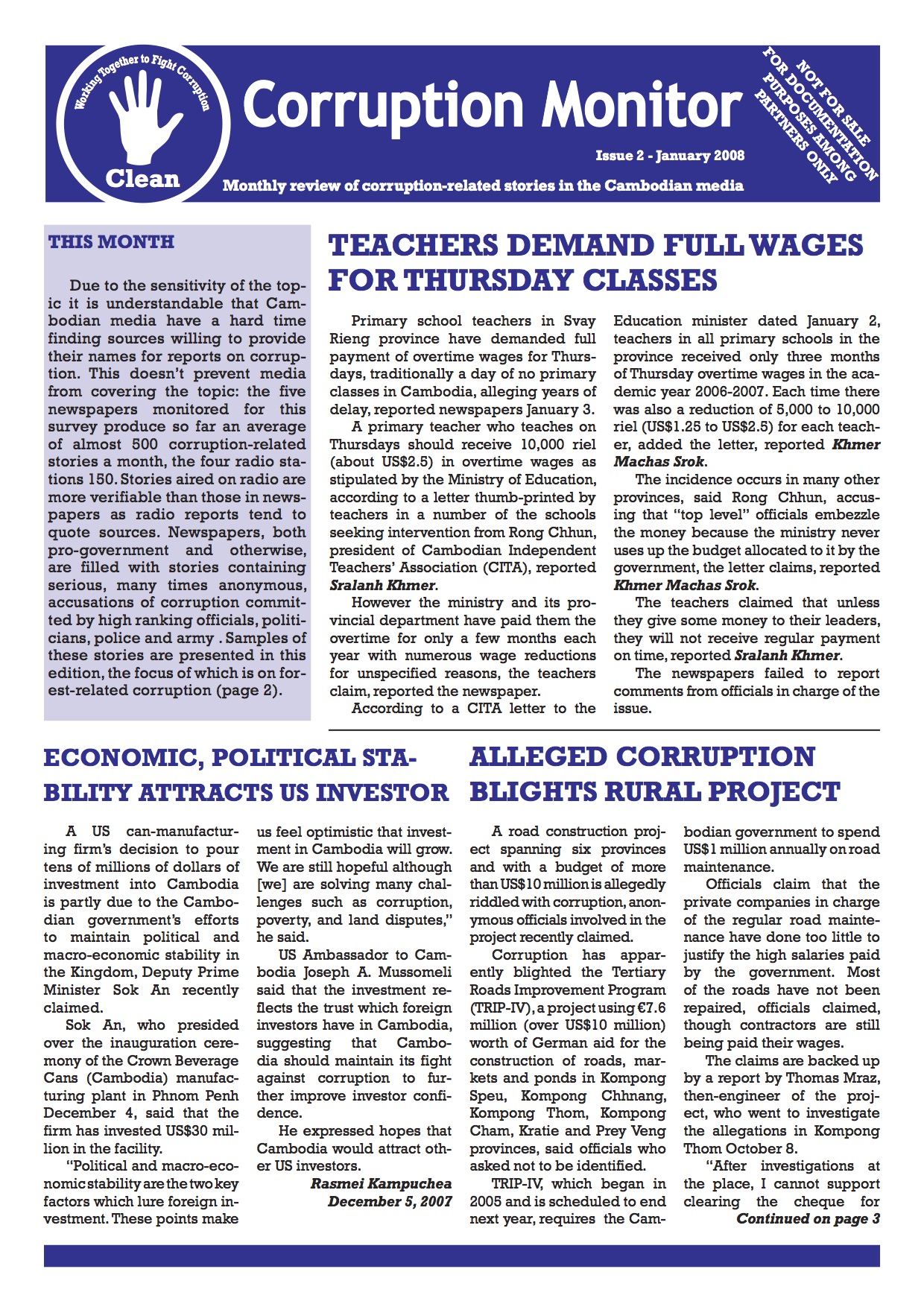
Corruption Monitor
Publication Year: 2008 / Sources: CleanMonthly review of corruption-related stories in the Cambodian media
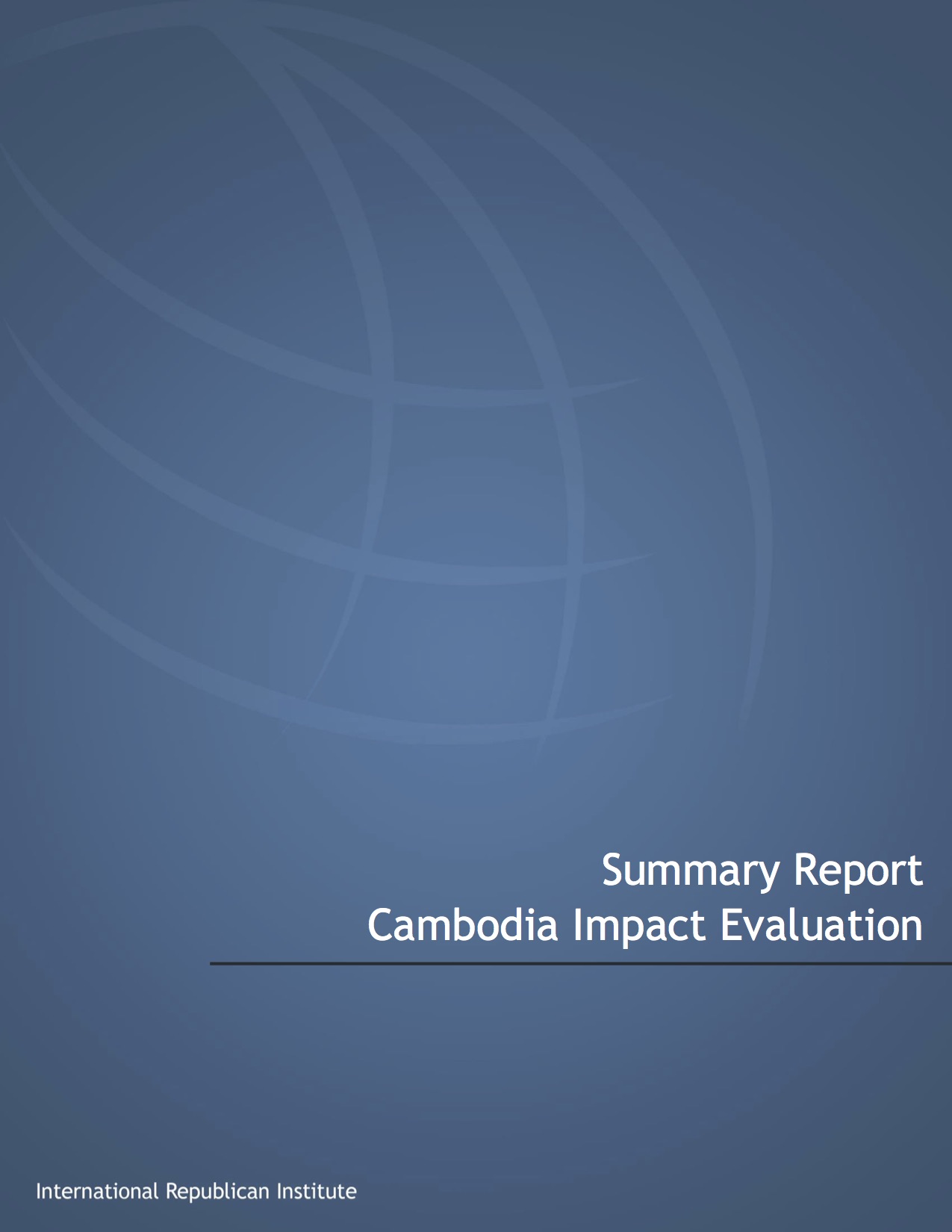
Summary Report Cambodia Impact Evaluation
Publication Year: 2014 / Sources: International Republican InstituteThe Cambodia office of the International Republic Institute (IRI) was approached in 2009 to pilot an impact evaluation at the request of the United States Agency for International Development (USAID) to: (a) explore the applicability of randomized control trial (RCT)- style evaluations to democracy and governance programs; and (b) determine the feasibility of conducting this type of evaluation internally, with program staff overseeing the implementation of the methodology.

Implementation of the Convention on the Elimination of All Forms of Discrimination Against Women In Cambodia, 2010
Publication Year: 2011 / Sources: Cambodian NGO Committee on CEDAW (NGO-Cedaw), Cambodian Committee for Women (CAMBOW)The recognition of the role of women as agents of change in social development is one of the lasting results of the international women’s movement. In an attempt to preserve and further the progress of the movement, the UN articulated a landmark treaty on women‟s rights: The Convention on the Elimination of All Forms of Discrimination Against Women (CEDAW).
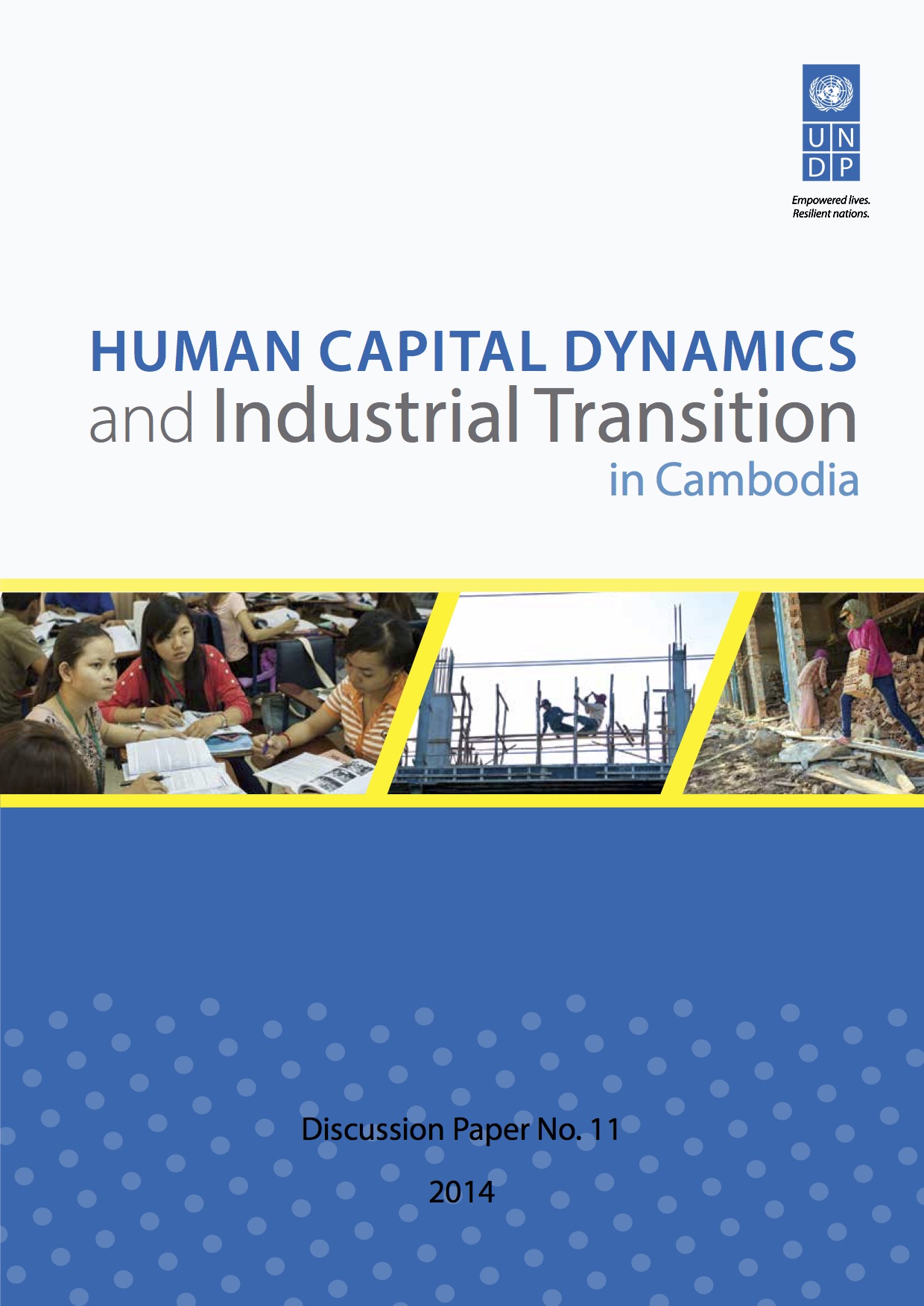
Human Capital Dynamics and Industrial Transition in Cambodia
Publication Year: 2014 / Sources: UNDPThis study highlights some of the key human capital challenges on the way to successful industrial transition of the Cambodian economy. In particular, it emphasizes the close connection between the competitiveness of the labour force, the opportunities afforded the country and its people by an integrated ASEAN, and the country’s efforts and capacity to absorb its excess supply of under educated, unskilled labour that might otherwise be excluded from decent employment and the benefits of economic growth altogether.
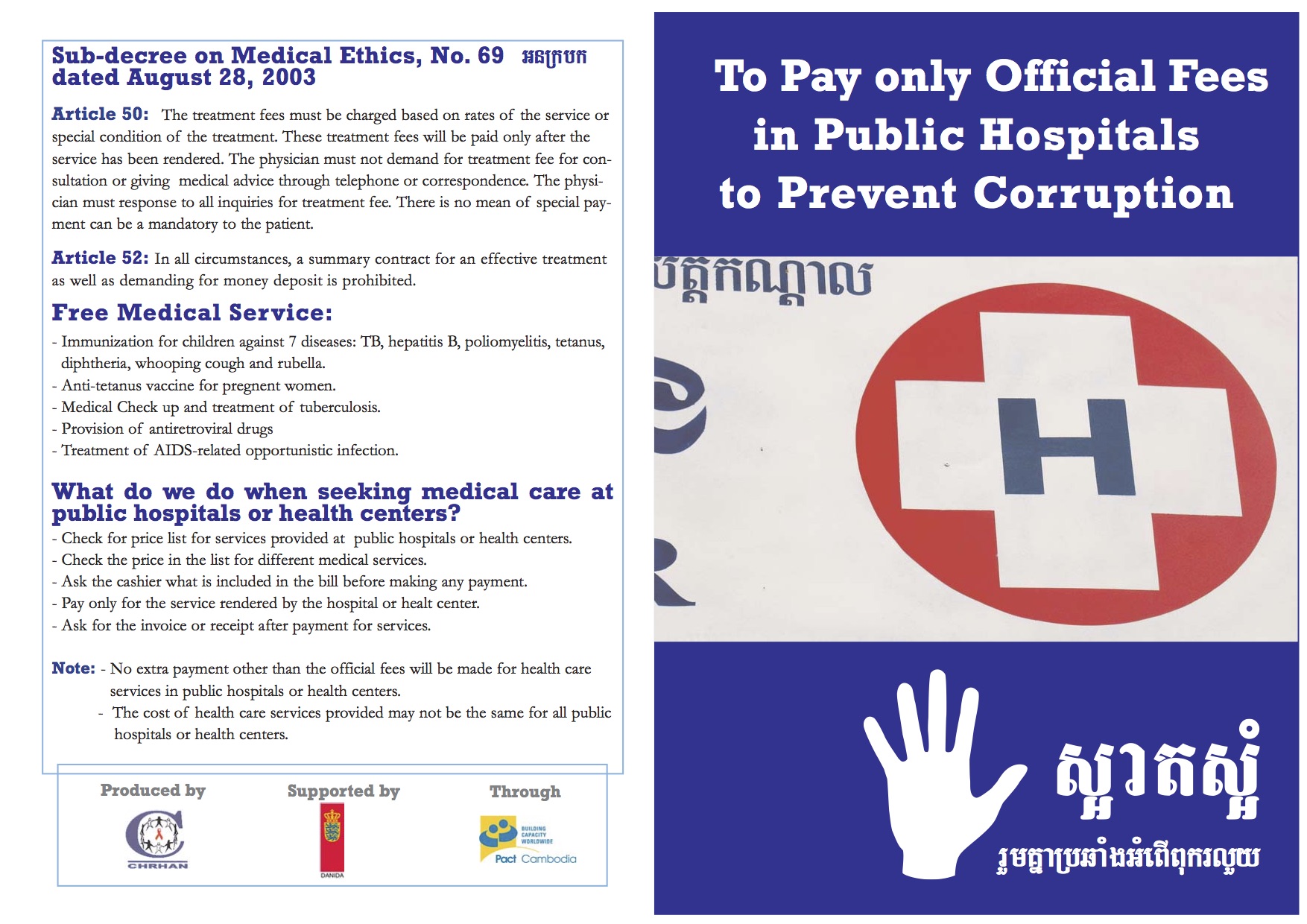
To Pay only Official Fees in Public Hospitals to Prevent Corruption
Publication Year: ---- / Sources: Clean CambodiaFighting corruption is a central part of our Government’s “Rectangular Strategy” for Growth, Employment, Equity and Efficiency. During the First Cabinet Meeting of the Third Legislature of the National Assembly, Prime Minister Hun Sen stated, “The key thrust of the Royal Government of Cambodia’s strategy to fight corruption is to take concrete actions that attack the roots of corruption”.
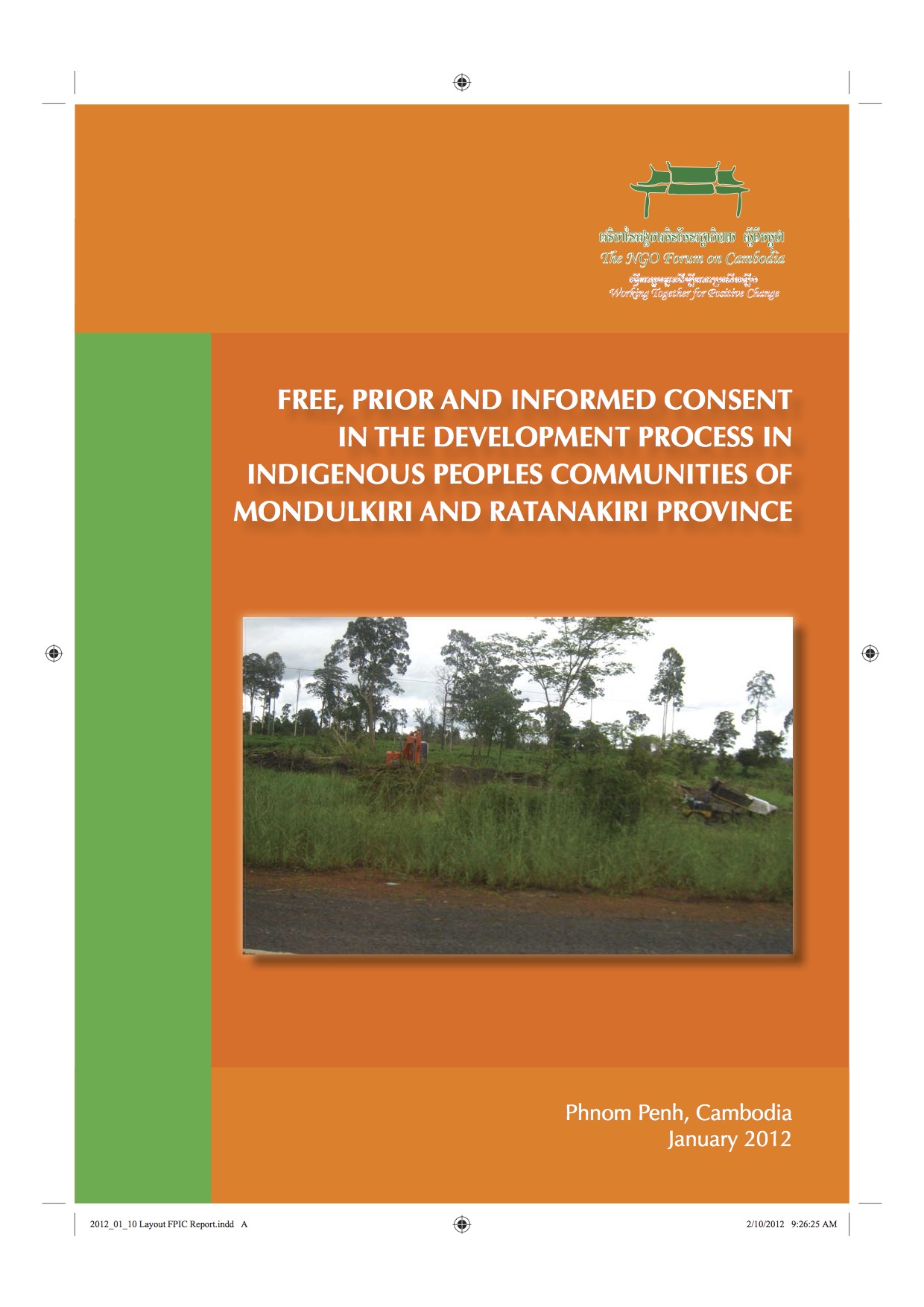
Free, Prior and Informed Consent in the Development Process in Indigenous Peoples Communities of Mondulkiri and Ratanakiri Province
Publication Year: 2012 / Sources: The NGO Forum on CambodiaThis paper presents case studies of four indigenous communities in Cambodia’s Ratanakiri and Mondulkiri provinces that are facing economic land concessions (ELCs) and/or mining licences granted on their land. The case studies present the perspectives of Indigenous People (IP) communities, local government authorities, and civil society.
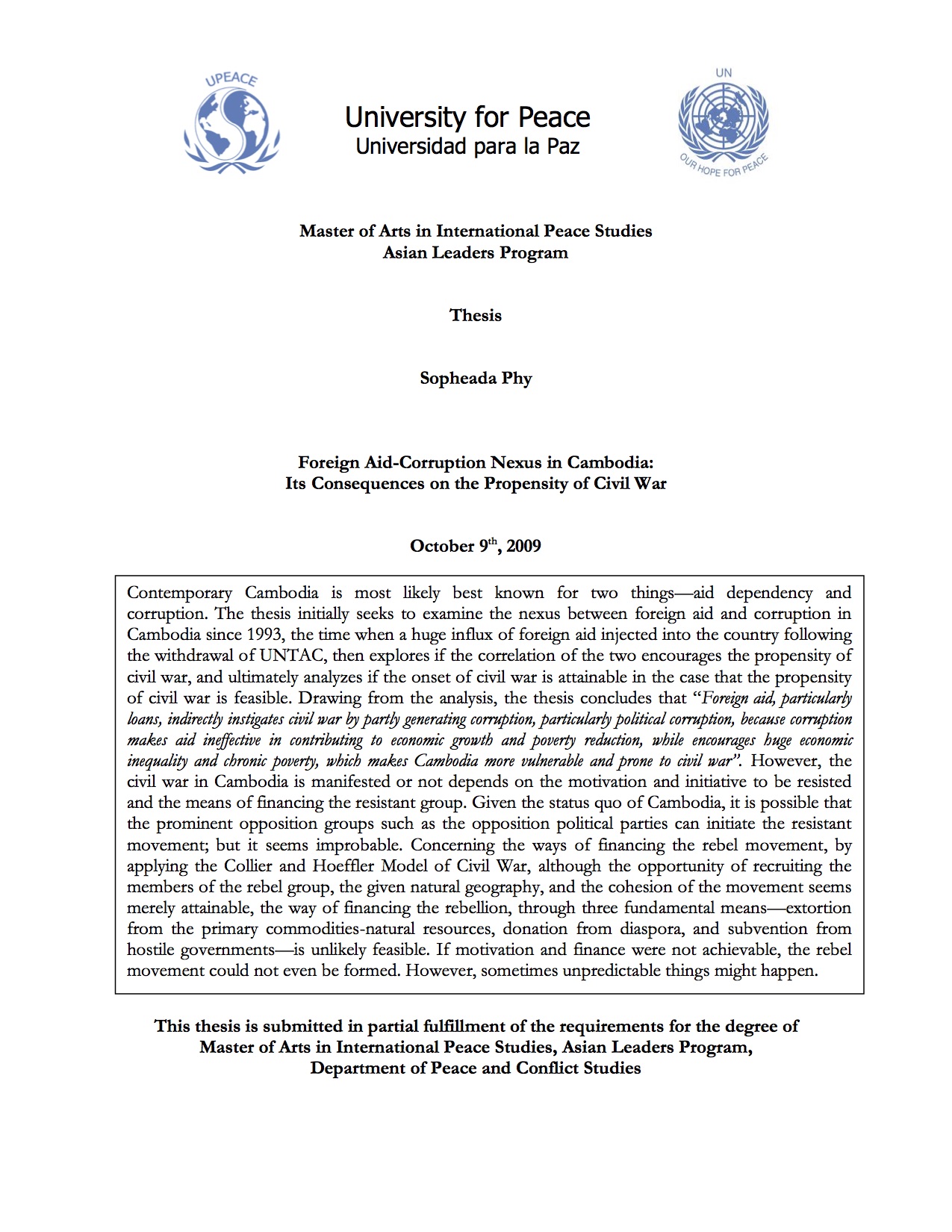
Foreign Aid-Corruption Nexus in Cambodia: Its Consequences on the Propensity of Civil War
Publication Year: 2009 / Sources: University for PeaceContemporary Cambodia is most likely best known for two things—aid dependency and corruption. The thesis initially seeks to examine the nexus between foreign aid and corruption in Cambodia since 1993, the time when a huge influx of foreign aid injected into the country following the withdrawal of UNTAC, then explores if the correlation of the two encourages the propensity of civil war, and ultimately analyzes if the onset of civil war is attainable in the case that the propensity of civil war is feasible. Drawing from the analysis, the thesis concludes that “Foreign aid, particularly loans, indirectly instigates civil war by partly generating corruption, particularly political corruption, because corruption makes aid ineffective in contributing to economic growth and poverty reduction, while encourages huge economic inequality and chronic poverty, which makes Cambodia more vulnerable and prone to civil war”.
